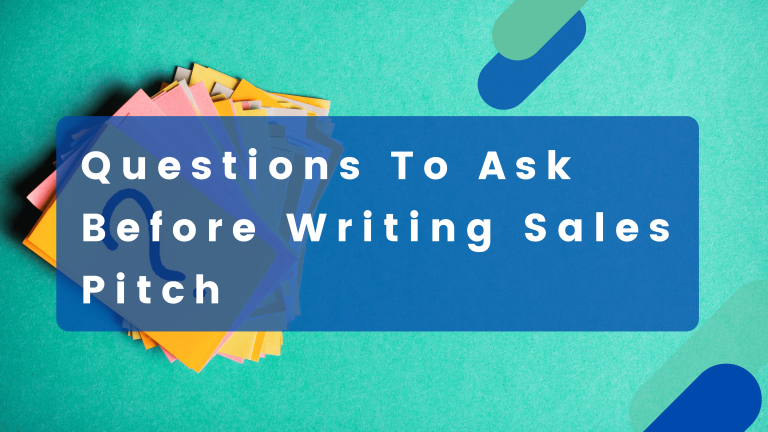Often the focus in sales is simply getting into the conversation: Who to target, how to approach leads, and fostering initial interest. But once we get into the meeting, we can find ourselves lacking structure or struggling with product knowledge, which is why it’s vital to have a written pitch as a guide for your strategy in the sale. Here are four key questions you should ask when constructing a perfect pitch:
“Can I tell what my product is in the first thirty seconds?”:
There needs to be a clear understanding of the product you’re discussing from the start of the meeting. Whether it’s because of a lack of product knowledge, overexcitement about the product, or overcomplicated language, salespeople can get lost in the details and leave details foggy. This just winds up with your client confused at best, or suspicious that you’re keeping something from them at worst, so it’s best to establish exactly what you’re selling quickly in your pitch.
“How does my product benefit the client?”:
Now that you’ve established what you’re selling, you need to establish how it might apply for the client. Depending on the context, you may be tailoring this section to a particular person or to a broader audience, but it’s vital to making your sale. Research is key here: Who do you want your message to be received by, and what unique needs do they have that might be suited to your product? You could have the greatest product in the world, but if it’s not going to be useful to your specific audience, they wouldn’t bother with it, so make sure you’re hammering home the specific value they could get out of this product.
“Am I lecturing?”:
While you want to have a structure to your sales process, good pitches have plenty of room for questions and discussion. It’s important to prepare answers for frequently asked questions about the product, so that you can be prepared for the conversation once things go “off-script”. Sales are more successful when conversation flows naturally, or even when the client speaks more than the salesperson, because it establishes trust and familiarity that can build into a greater business relationship.
“How am I coming across?” or, “What voice am I speaking in?”:
One of the first things people come away from a meeting with is the first impression of the salesperson. Part of what will establish your character in an initial email or LinkedIn message is your writing voice: are you stiff and technical, or casual and calm? There are lots of styles you can choose from while maintaining a professional tone, but most importantly make sure that your voice is genuine to you. How trustworthy you are is a key factor in whether the client is going to want to build a deeper business relationship, so it’s vital to present yourself in a way that is sincere, highly competent, confident and empathetic.
Pitches can be the most thrilling part of the marketing and sales process if you bring your fullest to them, creatively and personally, and really let the product come alive through your presentation of it. And if you keep all of these questions in mind, your pitches should be tighter, more effective and ready to start bringing in sales.










